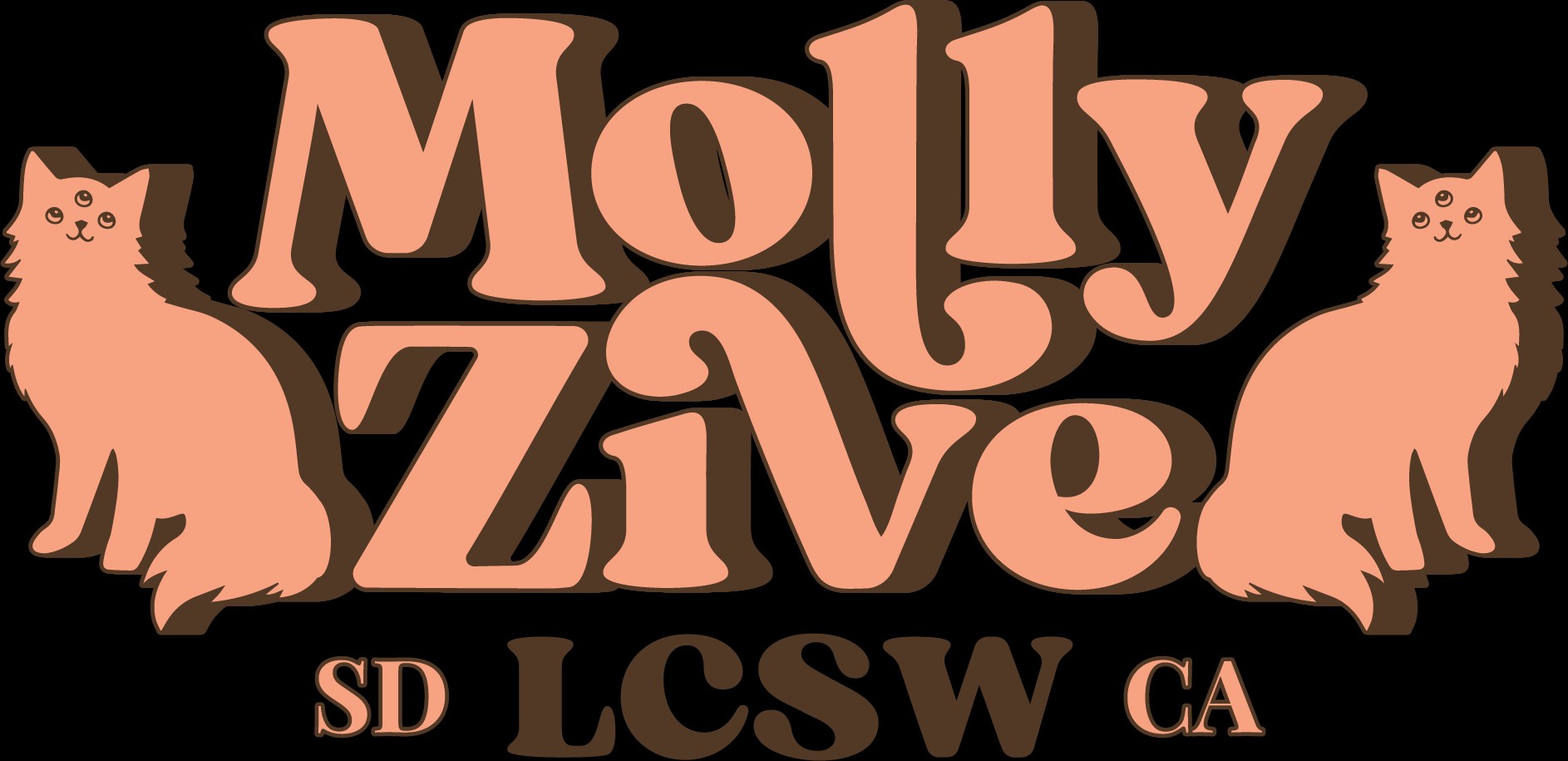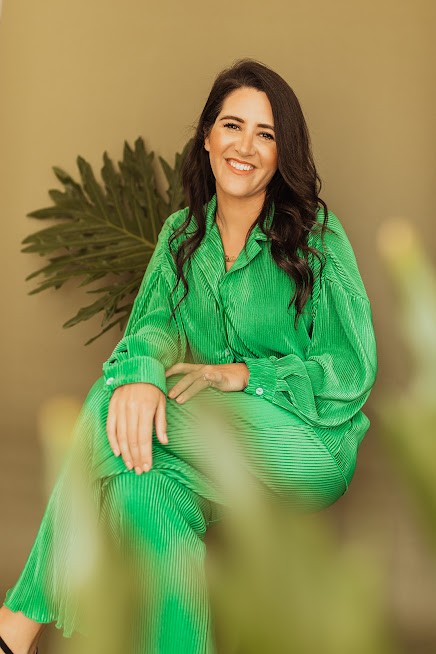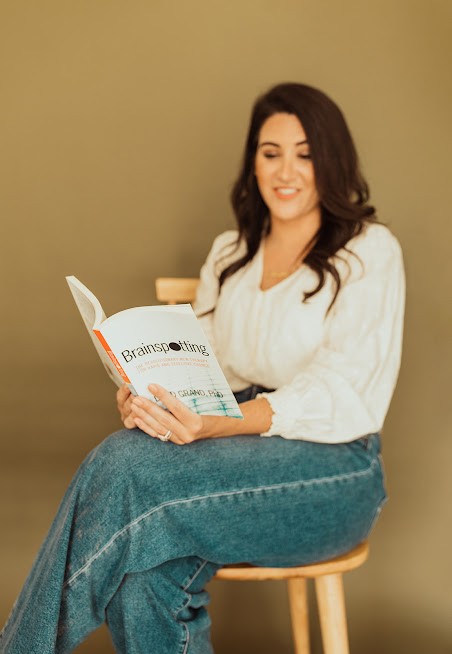We were lucky to catch up with Molly Zive recently and have shared our conversation below.
Molly , looking forward to hearing all of your stories today. Let’s go back in time to when you were an intern or apprentice – what’s an interesting story you can share from that stage of your career?
When I started graduate school at USC for social work. we had to fill out a form for what interests us in our first internship. I vividly remember wanting to work with children. I had worked for a year in a locked psychiatric facility with adults and I wanted a change of pace. I wanted to see people live freely, expressive themselves openly and tap into their creative nature who better to demonstrate this than kids, right? I ended up landing an internship at the state prison. I held so many emotions at this time before starting terrified, sad I didn’t get the internship I wanted, excited to be challenged, hopeful I could make a difference and eager to learn as much as possible.
I remember we were being prepped to start doing our clinical work with inmates. We were briefed on testing instruments to help understand the population. There were over 50 questions on this questionnaire we needed the inmates to fill out. I went into my first group thinking, “Oh this might be easy, I will just give them the papers and they’ll fill it out quietly for 45 minutes.” I was wrong. When I handed out the papers, an inmate blurted out “I can’t read. How am I supposed to do this?” Then another one, then another one and I recognized that half my group was illiterate. I was shocked and so sad. This was one of the first times in my career I recognized the various systems that failed these humans before even being sentenced to prison. They had not had opportunities to learn how to read in school. They came from families where their basic needs hadn’t been met (food, shelter, water) so of course, they didn’t have the capacity to learn how to read. That day changed my life completely. I recognized it wasn’t the failure of an individual who made “bad choices” but continuous systematic oppression and failures that never gave them a chance to succeed in life. This opened up so much more compassion in my heart for this population. What I thought would be an “easy” group turned into a big eye opening experience for me. I ended up facilitating the group by reading each question out loud along with the multiple choice answers.


As always, we appreciate you sharing your insights and we’ve got a few more questions for you, but before we get to all of that can you take a minute to introduce yourself and give our readers some of your back background and context?
I suffered from panic disorder in high school. I remember watching the bombing of Hiroshima and having my first panic attack at school. I felt like I was going to die. I felt like I couldn’t even go to school in fear I might have a panic attack again. I lived in fear for most of my life but never to this extent where my anxiety hijacked my brain and body.
I began working with own therapist who helped me tap into the mind body connection. She was a licensed clinical social worker and when I felt myself make significant progress, I was determined to become a social worker myself. I knew the educational path I needed to take to make this happen. I have a very strong will so when outside voices warned me about the pay and burn out in the field, I stayed on track to earn my Bachelor’s, Master’s and License to become a license clinical social worker.
I currently have my own hybrid (virtual and in person) practice that serves all of California. I specialize in helping millennials stop feeling stuck so they can consciously expand to their highest self. I truly believe that when my clients sit in the driver seat of their own well-being they’re able to heal themselves. I come from a holistic approach meaning I rely on intuition, brainspotting and mindfulness to assist my clients. I reject the medical model that people are “diseased” and I believe that when open to possibilities individuals can heal themselves. It is important to normalize our mental health.


Other than training/knowledge, what do you think is most helpful for succeeding in your field?
Being a student to life is so important to providing any kind of service. In the mental health field, we must continue to grow professionally with ongoing education, trainings and consultations but I find that doing our own inner work is so vital to helping our clients. Taking responsibility for my own mental health and making conscious effort to attend to my mental health daily has helped me so much in my career. I want to be present and show up fully for my clients. I know that in order to do this, I must have my own support and practices to be the best version of me.
I have a tattoo on my arm that says “ego death.” This reminds me to be open to shedding light on the blindspots I experience in my life. We all have different blind spots, triggers and wounds. I find it important to bring awareness to the aspects of myself that my ego gets in the way of. I am a human first then a therapist. I want to ensure my clients receive the best treatment possible so that means keeping myself healthy and providing a container for their growth. It is a process that will continue the rest of my life and never be completed.
Learning and unlearning are both critical parts of growth – can you share a story of a time when you had to unlearn a lesson?
I continue to challenge my internalized capitalism. Growing up I was given messages in mainstream media, family behavior and in school about how worthiness equals productivity. We are all fed messages about this concept. I felt like if I pushed myself harder, I would be more successful. I defined my success on what capitalistic ideals wanted me to believe including make as much money as possible, showing emotion is weak and don’t take breaks. I believe this is where my panic disorder stemmed from. I denied my own reality and tried to keep pushing through life even when my body screamed it couldn’t take this mistreatment.
It is incredibly important to have goals and taking proper steps however, it is equally important to surrender to life. I’ve learned to slow down a lot. I’ve learned to listen to my body more. I’ve redefined my values on what success means to me. I live my life more mindfully and simply. I am wanting to grow as a human but I’m intending to not rush the process. It continues to be a challenge for me but I’m so proud of my growth.
Contact Info:
- Website: https://therapywithmolly.com/
- Instagram: https://www.instagram.com/mollyzivetherapy/
- Facebook: https://www.facebook.com/mollyzivetherapy
- Linkedin: https://www.linkedin.com/in/mollyzive/
Image Credits
https://www.twopinesphoto.com/


